On 14 February 2019, the Constitutional Court of Thailand accepted the request of Election Commission of Thailand (ECT) to rule on the dissolution of the Thai Raksa Chart (TRC) Party. In other words, 9 judges will decide the fate of the 2019 Thai general election.
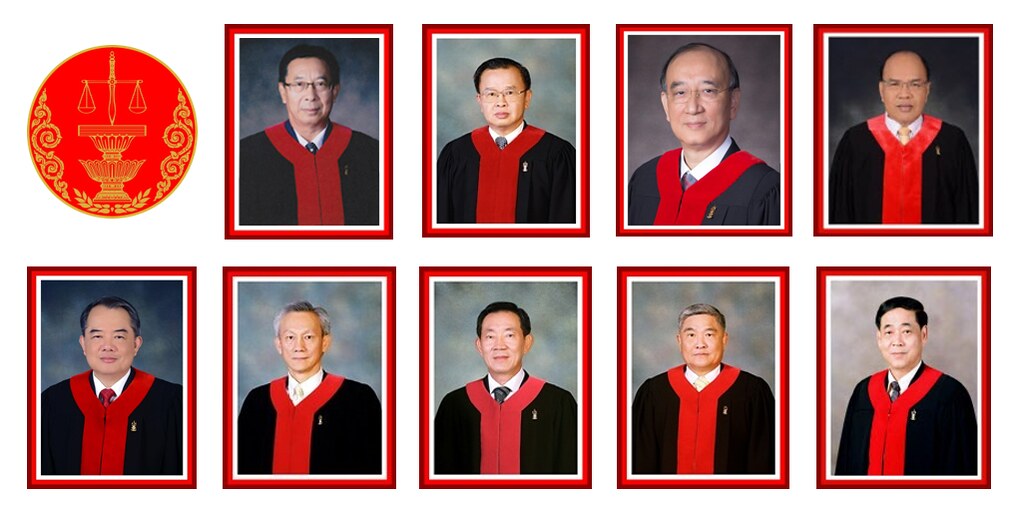
9 judges of the Constitutional Court
Source: Constitutional Court
The case began on 8 February, a historic day in Thai politics, when TRC, a political party associated with Thaksin Shinawatra, nominated former Princess Ubolratana Mahidol to be its only candidate for Prime Minister. Then a Royal Command was released stating that this was unconstitutional and inappropriate.
The ECT resolved on 13 February to request that the Constitutional Court rule on the TRC’s dissolution. The Court accepted the request on Valentine’s Day, and called on the TRC to give evidence within 7 days.
Once again, the Constitutional Court will decide the fate of Thai politics.
Pichit Chuenban, a legal advisor to the TRC, petitioned the ECT on 13 February, complaining that the evidence it had collected had been one-sided. On the morning of the same day, Ubolratana posted on Instragram that problems with her candidacy “shouldn’t have occurred.”
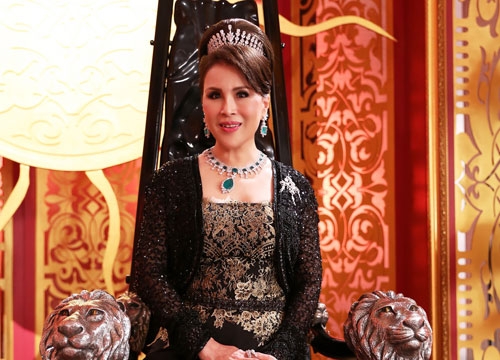
Princess Ubolratana
Jaran Ditapichai, leader of Association des Démocrates Thaïlandais Sans Frontières, political refugee and former Red Shirt, wrote an open letter to the Constitutional Court demanding that Ubolratana Mahidol and the executive board of the TRC be included in the hearing process.
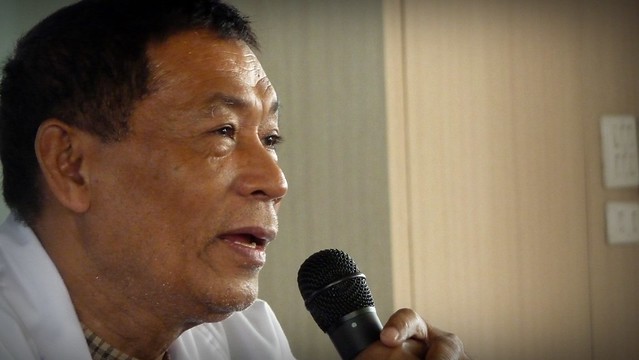
Jaran Ditapichai
Association des Démocrates Thaïlandais Sans Frontières
On 27 February 2019, a press release from the Constitutional Court announced that since sufficient witnesses and evidences have already been collected, there is no need for a hearing on that day.
Judicialization of Thai Politics
The TRC case can be considered as part of the judicialization of Thai politics. Since 2006, the Constitutional Court has intervened at least 9 times in Thailand’s major political crises. The precedents do not offer a good omen because in every case, they overthrew an elected government.
Judicialization of Thai Politics: Constitutional Court in Political Crises
- 8 May 2007 – Nullification of the General Election on 2 April 2007, after Thaksin Shinawatra dissolved parliament.
- 30 May 2008 – Dissolution of the Thai Rak Thai Party and the other three political parties.
- 9 Sep 2009 – Removal of the late Samak Sundaravej from the Prime Ministership.
- 29 Nov 2010 –Charges dropped against the Democrat Party, which would have led to its dissolution,
- 2 Dec 2010 – Dissolution of the People’s Power Party associated with Thaksin Shinawatra, and removal of Somchai Wongsawat from the Prime Ministership.
- 13 Jul 2012 – Rejection of a Constitutional Amendment passed by Parliament.
- 24 Jan 2014 – Postponement of the General Election after Yingluck Shinawatra dissolved Parliament.
- 13 Mar 2014 – Nullification of the General Election after obstruction by the PDRC mob.
- 7 May 2014 – Removal of Yingluck Shinawatra from the Prime Ministership.
Under the 2007 constitution enforced after the coup in 2006, 9 Constitutional Court judges were appointed by King Rama IX on the recommendation of the Senate. Of the 150 senators at the time, 73 were appointed and 77 were elected. Even though their tenure is limited to one 9-year term, 4 of the judges were replaced under the 2007 constitution between 2013 and 2015, 3 due to retirement (70 years old) and 1 due to resignation.
The remaining 5 should have left the bench after they completed their 9-year terms in 2017, but the National Assembly—all members of which were appointed by the NCPO after the coup in 2014 – prolonged their tenure until the 2017 Constitution and the organic laws came into effect. With the 2017 Constitution in place, the term of office is shortened to one 7-year term and the age of retirement is 60.
However, the provisions of the new constitution were not applied to the Constitutional Court judges. 5 of them, appointed in 2008, were allowed to remain further until an elected parliament starts a selection process. The other 4, who were appointed between 2013 and 2015, were also allowed to stay until a retirement at age 70 under the 2007 constitution.
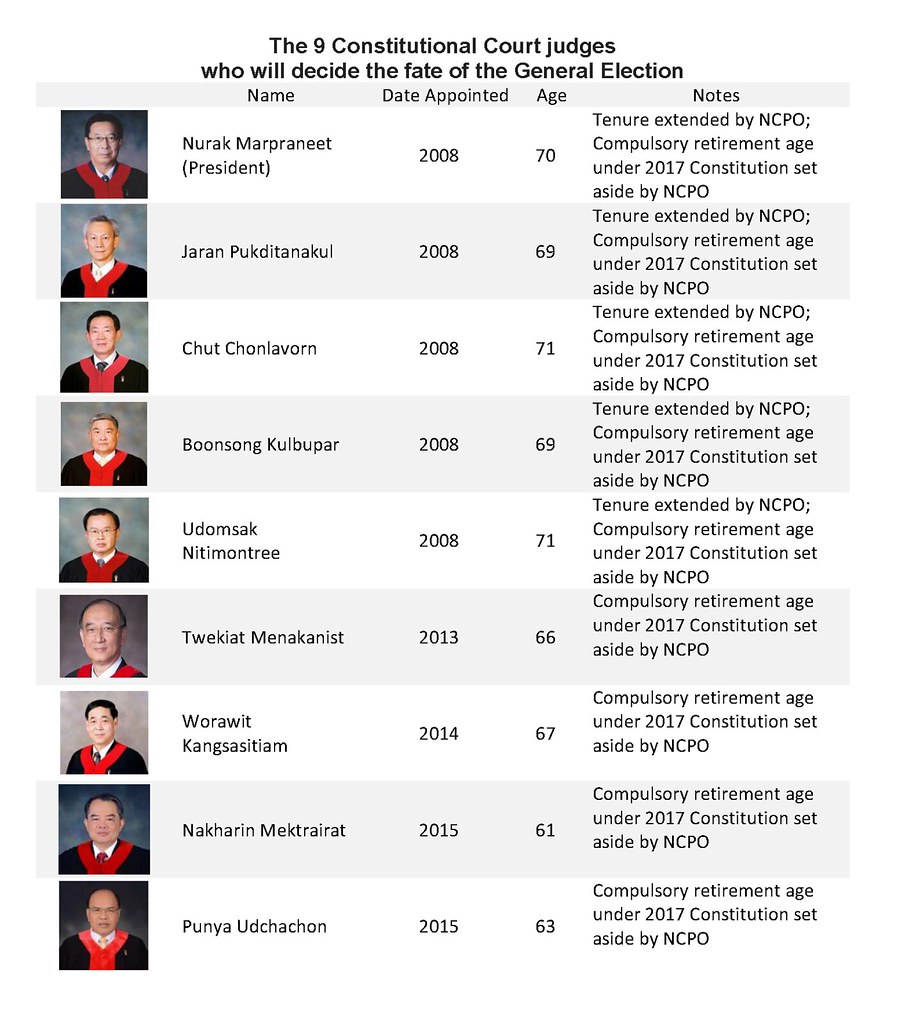
The 9 Constitutional Court judges
who will decide the fate of the General Election
In other words, all the current judges were appointed with the approval of a semi-democratic or undemocratic legislature. In 2018, the National Assembly also increased their salaries along with those for other independent bodies. The President of the Constitutional Court got an increase from 125,590 baht to 138,090 baht per month and the other judges got an increase from 115,740 to 131,920 baht. The judges are bound by royalist culture as they have to swear an oath of loyalty to the King. Since its establishment in 1997, no woman has ever been appointed as a member of the Constitutional Court.
Constitutional Court in this election
If the Constitutional Court rules to dissolve the TRC before the election on 24 March, its 284 MP candidates will be out of the game. Without the TRC, it would be even more difficult for Thaksin's bloc to fight an already uphill battle.
Backed by the 250 non-elected senators, Prayut Chan-o-cha will need to secure only 126 votes from House of Representatives to earn a majority of the whole parliament (376 out of 750) to become the Prime Minister.
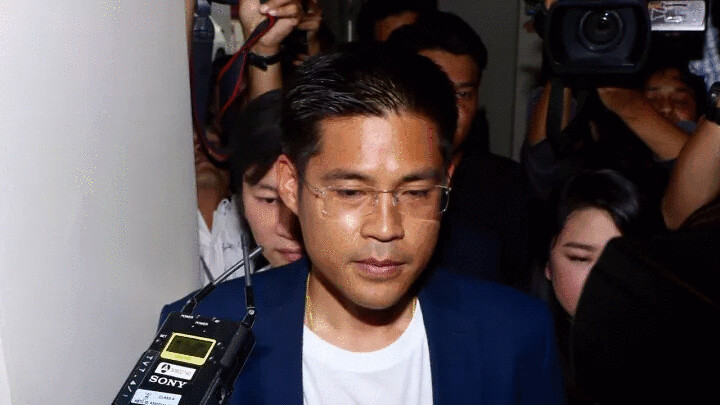
Lt Preechapol Pongpanich, leader of the Thai Raksa Chart Party, after the Royal Command
Thaksin's bloc will need to secure 376 votes, all from the House of Representatives, to form a government. Without the TRC, there will no MP candidates from parties associated with Thaksin in some constituencies. Prayut Chan-o-cha will try to exploit this weakness by letting the Constitutional Court judges, their tenure prolonged by NCPO, to rule on the dissolution of the party.
A less likely case is dissolution after the announcement of election results on 9 May. This will mean that the elected MPs can join other political parties associated with Thaksin Shinawatra, namely the Pheu Thai and Pheu Chart parties. It is also possible that the Prayut-led Phalang Pracharat Party will try to persuade MPs from the dissolved party to join them.
The Constitutional Court may avoid at all cost ruling on the case during the period after election but before the announcement of the election results because that would be seen as a blatant nullification of people’s ballots and could lead to chaos or a constitutional crisis.
Legal Status of the Royal Command
The challenge is how to justify the dissolution of the TRC. It can be argued that the TRC did nothing wrong because Ubolratana Mahidol had already renounced her royal status. According to Sawatree Suksri, a legal scholar at Thammasat University’s Faculty of Law, “if in the end Ubolratana Mahidol decides to be a candidate for Prime Minister, she can do so because the Constitution does not forbid it.”
Sawatree Suksri
One possibility is to rely on the Royal Command released on 8 February at 10.45 pm which says that she is still a high-ranking member of the royal family and thus above politics. However, the legal status of the Royal Command is unclear. In an interview, Sawatree said that the Royal Command has no legal status because it does not come from the legislative or executive branch.
“The content of the Royal Command’s is not an order, but a recommendation. Even though at the end it looks like an interpretation to broaden the meaning of the Constitution, in general it is not a clear order and has no legal effect at all. So the Royal Command is, of course, not a law. Even if it is issued as a Royal Command, its content is not an order to do either one thing or another. It just states that the monarchy should be above politics and inviolable. This leaves each party to go and think for themselves what should happen next, but it is certain that the King disagrees with Princess Ubolratana becoming a candidate. And that’s it. It’s like the words of what His Majesty thinks.”
- Sawatree Suksri
A legal scholar, Thammasat University
Sawatree said that because Thailand has a codified system of law, it does not matter how good an interpretation is or who makes it, it has no legal effect if it goes beyond the text. “Article 6 of the Constitution mentions only the King; it cannot be interpreted beyond the words written in the law,” said Sawatree. Even so, she said that one will have to wait and see if the Constitutional Court will cite the Royal Command to justify its ruling.
Prachatai English is an independent, non-profit news outlet committed to covering underreported issues in Thailand, especially about democratization and human rights, despite pressure from the authorities. Your support will ensure that we stay a professional media source and be able to meet the challenges and deliver in-depth reporting.
• Simple steps to support Prachatai English
1. Bank transfer to account “โครงการหนังสือพิมพ์อินเทอร์เน็ต ประชาไท” or “Prachatai Online Newspaper” 091-0-21689-4, Krungthai Bank
2. Or, Transfer money via Paypal, to e-mail address: [email protected], please leave a comment on the transaction as “For Prachatai English”
